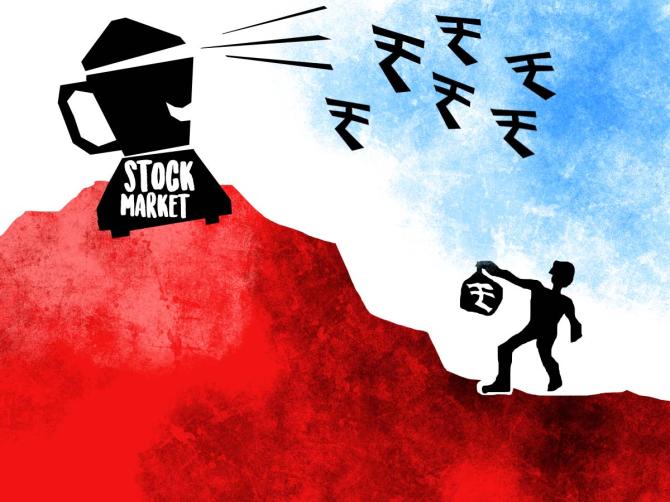'We remain positive on technology, private sector financials, gas, infrastructure, and export-oriented plays.'

Yogesh Patil, head of equity at LIC Mutual Fund Asset Management, shares his views on the road ahead for the equity markets in an interview with Puneet Wadhwa.
Do you see any stress points for the markets given that they are at record highs?
Markets are now looking towards financial year 2022-2023 (FY23) earnings.
Corporate earnings for Q2 may not have a significant impact on the broader equity market, though we may see stock-specific reactions.
While the fear of the third wave remains, taking cues from the developed economies, increased vaccination could ensure lower hospitalisation rates versus the second wave.
What is the road ahead for flows into the equity segment -- domestic and foreign -- over the next few months?
Flows to emerging markets will be determined by global trends, interest rate cycle, and potential return from specific assets as well as countries.
For India, the fundamentals may rank us higher on the league table for foreign flows.
Domestic flows into equities, I believe, will also continue on account of financialisation of savings, at least in the near term.
Which sectors are you overweight and underweight on?
We remain positive on technology, private sector financials, gas, infrastructure, and export-oriented plays that may continue to see earnings upgrades.
And remain underweight on sectors/companies that have clear disruption risks, volatile earnings, low capital efficient business -- like commodities, and leverage-heavy business.
What are your key takeaways from Q1 results of India Inc?
While the quarter was marred by the sequential impact due to partial lockdowns/second wave in several states, the favourable base (significantly impacted by the stringent nationwide lockdown in 2020) helped drive revenue and profitability on a year-on-year basis.
Commentaries across sectors are positive, and most managements are deriving confidence from the vaccination drive.
Firm commodity prices have been an issue. How is India Inc likely to deal with it?
The sharp increase in commodity prices in a short span is making life difficult for producers as they are unable to pass on the cost to the consumer in the near term.
However, once the commodity prices stabilise, we may see a large part of the cost getting passed on to consumers.
Can this dent consumption?
Yes, in the short term this may hurt consumption.
In the long term, however, the consumption story should remain intact as companies find better, cost-effective alternatives or reengineer products to reduce the overall impact.
We have seen this happening in the auto sector, where metal body parts are now being replaced by toughened fibre body or strong plastic moulds.
Scrappage policy, Ola's e-scooter launch... are these disruptions that the auto sector does not need at a time when it is already grappling with other headwinds?
Auto stocks have been underperformers in the last one year due to the electrification trend picking pace, especially in case of two-wheelers; semi-conductor shortage that has impacted production schedules of most companies; and high inflationary environment, which has led to margin pressure.
The launch of Ola e-scooter at disruptive pricing may have an impact on the ICE scooter segment.
While it's too early to call out the winners and losers here, we expect aggressive launches by incumbents over the next one-two years to retain their market dominance.
With respect to the government's scrappage policy, the incentives provided are attractive to lure customers to voluntarily scrap their vehicles.
Feature Presentation: Aslam Hunani/Rediff.com











